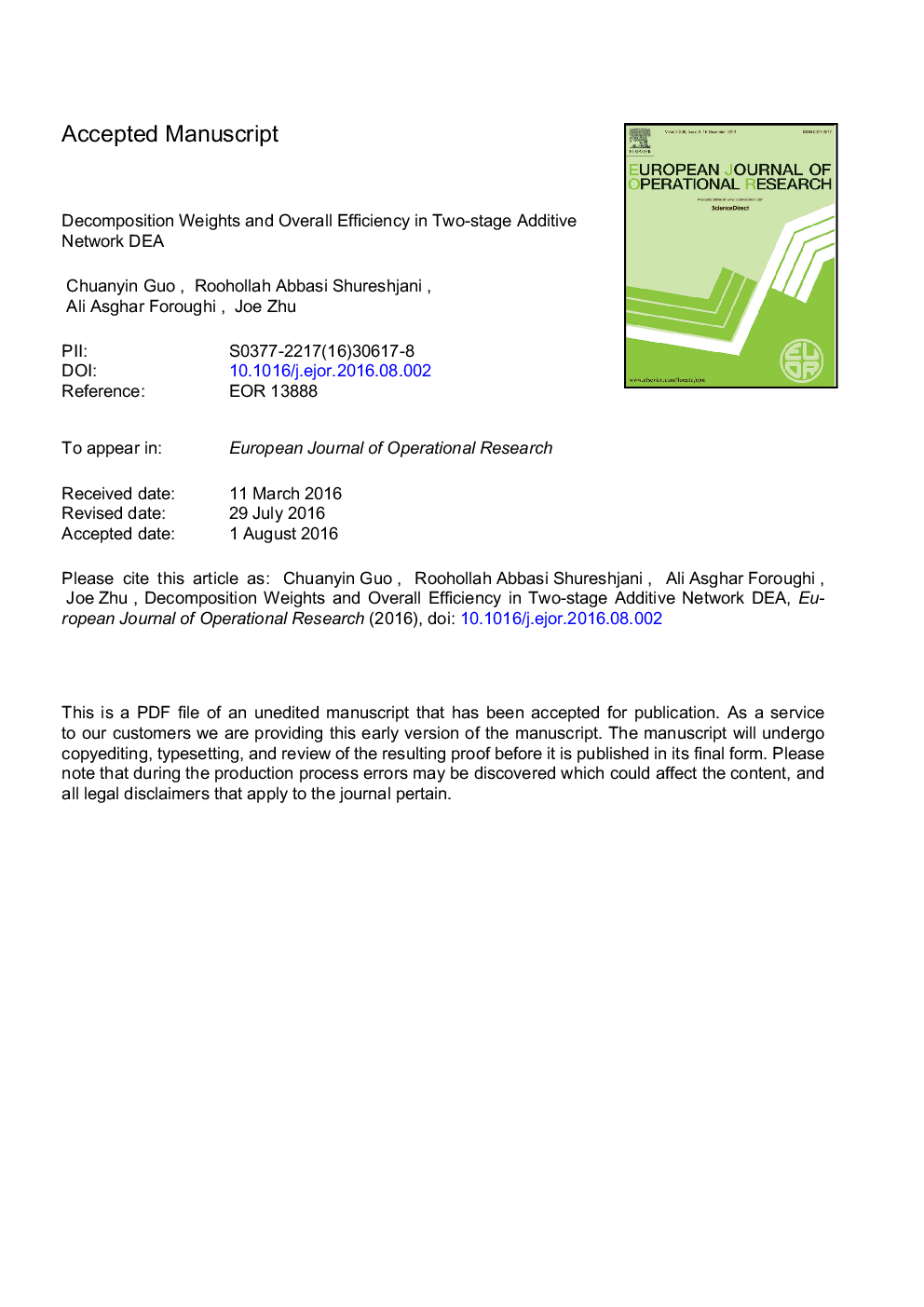| Article ID | Journal | Published Year | Pages | File Type |
|---|---|---|---|---|
| 4960035 | European Journal of Operational Research | 2017 | 33 Pages |
Abstract
Data envelopment analysis (DEA) is a technique for performance evaluation of peer decision making units (DMUs). The network DEA models study the internal structures of DMUs. Using two-stage network structures as an example, the current paper examines additive efficiency decomposition where the overall efficiency is defined as a weighted average of stage efficiencies and the weights are used to reflect relative importance of individual stages. We show that weights may not affect the calculation of stage efficiency scores and that variation in the overall efficiency resulting from using different weights can be associated with constant stage efficiencies. We demonstrate the need to isolate the impact of weights on the overall efficiency. We propose to use a new overall efficiency index to address some pitfalls in weighted additive efficiency decomposition. Our findings are illustrated using two empirical data sets representing two types of two-stage network structures.
Related Topics
Physical Sciences and Engineering
Computer Science
Computer Science (General)
Authors
Guo Chuanyin, Roohollah Abbasi Shureshjani, Ali Asghar Foroughi, Zhu Joe,
